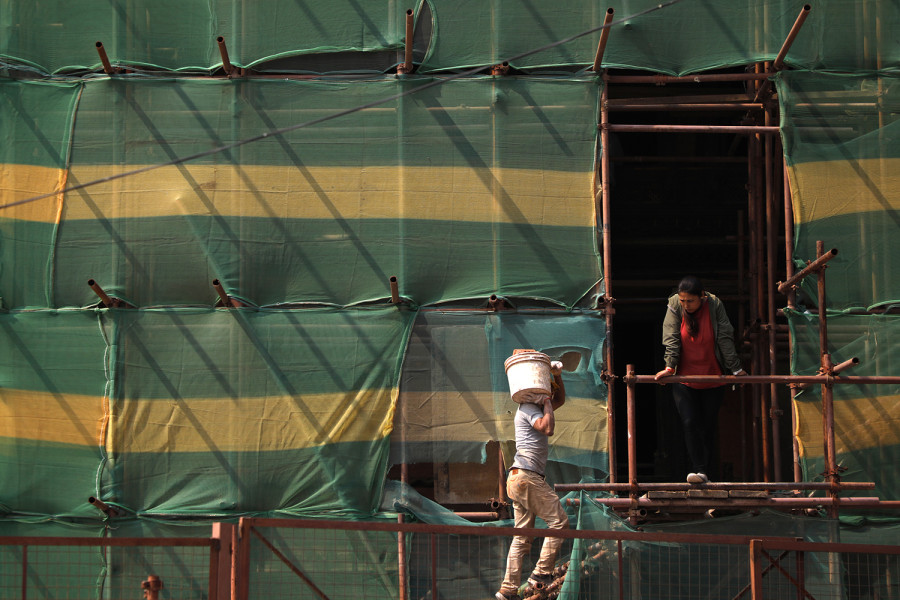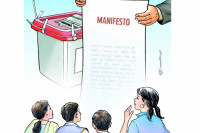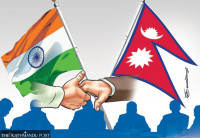National
Covid-19 pandemic likely to devastate country’s labour sector as ILO projects 25 million job losses globally
While labour migration has come to a complete halt, more job cuts are expected in the domestic labour market as well, labour experts say.
Chandan Kumar Mandal
The global Covid-19 pandemic has wrought havoc across the continents, leaving behind not just thousands dead, but also the global economy in tatters.
According to estimates from the International Labour Organisation, nearly 25 million jobs could be lost worldwide as a result of the pandemic.
“The economic and labour crisis created by the Covid-19 pandemic could increase global unemployment by almost 25 million,” reads the ILO statement. “An initial assessment of the impact of Covid-19 on the global world of work says the effects will be far-reaching, pushing millions of people into unemployment, underemployment and working poverty, and proposes measures for a decisive, coordinated and immediate response.”
For the Nepali economy, which is already reeling from the effects of the global Covid-19 outbreak, this will mean a significant rise in unemployment, according to labour experts.
According to Jeevan Baniya, assistant director of the Centre for the Study of Labour and Mobility at Social Science Baha, a think tank, Covid-19 can have cascading effects on the country's labour market.
“The impacts are already visible. Some employers have already started laying off employees whereas others have asked them to stay on unpaid leave for some time,” said Baniya. “The effects are likely to worsen in the coming days as often happens during times of shocks and disasters.”
The country’s tourism and aviation sector has been hit the worst by Covid-19. First, the government temporarily stopped issuing on-arrival visas to tourists from all countries and put an end to all spring mountaineering expeditions, including Everest ascents—all to prevent the spread of Covid-19. Now, the government has halted the arrival of all passengers, including Nepalis, from countries in Europe, the UK, West Asia and the Gulf, effectively throttling the number of incoming tourists to a trickle during peak tourist season.
The cancellation of visas and mountaineering expeditions is expected to put around 20,000 tour, trekking and mountain guides out of job. As a result, hotels and restaurants are running empty and occupancy has dropped significantly, leading owners to consider staff layoffs.
Janak Chaudhary, general secretary of the General Federation of Nepalese Trade Unions, said that the effects of Covid-19 are already visible in travel and tourism but other sectors have not been significantly affected.
“What’s worse is that we have no idea how long this will last,” said Chaudhary. “Things will turn unimaginable if the situation continues for a long time.”
According to Chaudhary, if the situation exacerbates and Nepal goes into a complete lockdown, companies might have to shut down, leaving thousands unemployed.
“Most companies operate by importing raw materials, and their existing stocks cannot last for a long time,” said Chaudhary. “Therefore, they might cut down on the number of workers at any time. However, we have asked them not to take advantage of the crisis and remove workers unfairly as that could only lead to conflict once the crisis is over.”
The ILO has said if there is an internationally coordinated policy response, as happened after the global financial crisis of 2008-9, then the impact on global unemployment could be significantly lower.
Various sectors have been expressing concerns about saving the country’s economy from the adverse impacts of Covid-19. They suggested that the government ensure the supply of essentials, control prices, slash customs duties on raw materials, and reschedule loans.
The ILO assessment report too calls for urgent, large-scale and coordinated measures across three pillars: protecting workers in the workplace; stimulating the economy and employment; and supporting jobs and incomes as the Covid-19 outbreak continues.
Those measures include extending social protection, supporting employment retention (short-time work, paid leave, other subsidies), and financial and tax relief, including for micro, small and medium-sized enterprises.
Countries like Denmark have already come forward to support their citizens who cannot work due to the Covid-19 outbreak. The Danish government has assured its employers that it would cover 75 percent of employee’s salaries if they promise not to cut staff.
The Canadian government has also introduced a massive $82 billion aid package to support its citizens and businesses impacted by the Covid-19 pandemic.
In a bid to protect its citizens from incurring any financial losses because of the Covid-19 outbreak, Canadian Prime Minister Justin Trudeau, on Friday, famously said, “No one should have to worry about paying rent, buying groceries, or additional child care because of Covid-19. We will help Canadians financially.”
According to experts, the state and society must come forward in providing similar assistance to workers whose incomes have been affected due to coronavirus fears.
“Welfare states have come forward with such relief measures. Employers should embrace a pragmatic and humane approach while dealing with the current crisis,” said Baniya. “The employers should treat its workers based on humanitarian grounds. Although they are more concerned about profit, they should not immediately lay off.”
Furthermore, even if the workers want to work and employers continue with their day-to-day operations, those working in groups are at a higher risk of contracting the disease as viruses spread through contact and it’s advised to maintain distance, said Baniya.
For an economy fuelled by remittance, the drying up of overseas jobs is certain to have a severe impact on the country. Labour migration has already come to a complete halt, and numerous affected countries that are also labour destinations for Nepali migrants have gone into lockdown, shuttering industries and factories.
While job cuts are likely at home, Nepali migrant workers are not only facing reduced working hours abroad but they are also not able to return home. This might leave them without basic facilities and their families back home without an income.
According to Chaudhary, the Labour Ministry should take diplomatic measures to ensure that Nepali workers abroad are paid during lockdowns and that nobody is left stranded without income and food.
Daily-wage earners will be the hardest hit, as they have to go out every day to make ends meet. Experts urge the state to identify the most vulnerable groups, not only in terms of safety but also those who are likely to go through immediate job loss.
“It is high time that the state came forward with relief packages. Besides, there should also be social solidarity to protect vulnerable groups,” said Baniya. “Various social institutions can be mobilised to help the most affected. The state should have immediate, medium- and short-term plans.”
During a regular press briefing on Thursday, Finance Minister Yubaraj Khatiwada said that those who could not rejoin their overseas jobs due to the travel suspension could be employed under the Prime Minister Employment Programme.
Labour rights organisations have also been holding discussions with the employers on how the workers can be helped, based on a tripartite understanding.
“As per the Labour Act, employers can lay off staff in case of a crisis,” said Chaudhary. “But if they are requesting support from the state, they should think of workers too. We are proposing that employers should pay half a month’s salary if workplaces remain closed.”




 10.12°C Kathmandu
10.12°C Kathmandu















